- Home
- Joel Goldman
Deadlocked lm-4
Deadlocked lm-4 Read online
Deadlocked
( Lou Mason - 4 )
Joel Goldman
Joel Goldman
Deadlocked
Chapter 1
Ryan Kowalczyk knew something few people ever knew: the exact time he would die. He had spent the last fifteen years watching each month melt away until only one month, July, remained. He lingered through those July days, indifferent to the merciless heat that claimed a dozen lives across Missouri, waking early on Sunday July 16th, his last day. His gut twisted. The hard floor cool to his bare feet, he sat on the side of his bed, head in his hands, wondering for the millionth time how it would feel when the drugs hit his veins at midnight.
Two kinds of people knew what he knew. Suicides and death row inmates. He couldn't kill himself. Not because he clung to the fantasy that some court more supreme than the one that had condemned him would grant him a new trial, though his mother promised him that each time she visited. Not because the governor might commute his sentence, the last chance his lawyer was still pursuing in the final hours of his life. And not because he lacked the courage. He had thought of plenty of ways to kill himself, beating the guards who were sworn to keep him alive until the prison's execution team could poison him.
Ryan Kowalczyk wouldn't kill himself because he was innocent. That's what he told the police when they came for him. That's what he told his mother when she clung to his bony shoulders, the jury's verdict a knife in both their hearts. That's what he told Father Steve, the priest who sat with him now in the death-watch cell, counting down the final sixty minutes of Ryan's life.
"Don't waste these last precious moments, boy," the priest said. "Confess your sins and go to God with grace."
Ryan ignored the priest, as he ignored his last meal, a thick steak swimming in bloody juice. What's the point, Ryan thought, rising from his bed, pressing his face against the small window cut in the door of his cell, the glass cool against his lips, a guard sitting on the other side, staring back at him. The guard checked his watch, impatiently tapping the crystal face with his finger. Ryan was already dead, numb to fear or regret, consumed by one question.
"What's it like?" Ryan asked Father Steve, not turning around, his breath fogging the glass.
"Heaven?" the priest asked, placing his hand on the condemned man's shoulder. "It's God's glorious kingdom, but it's reserved for those who accept God and come to Him with a clean heart. That's why you have to confess, Ryan. Before it's too late."
"Not heaven, Father. Dying. I don't believe in heaven or God or any of that bullshit. If all that were true, I wouldn't be here and you and I know that."
Ryan pivoted, facing the priest, his face inches from Father Steve. He could taste the sour scent of stale tobacco soaked into the priest's black clothes. Father Steve's lips twitched; he needed a smoke. Ryan was lanky and a head taller than Father Steve who was thick, his fat neck stuffed inside his collar, a trickle of sweat staining the white.
The death-watch cell was close, crammed with a cot, toilet, basin, and chair all made of steel. The floor was tile, the ceiling cast in concrete. Weak fluorescent light bathed the priest's face with a pale purple hue, reminding Ryan of faded vestments.
Ryan held the priest's eyes, catching a flicker of doubt that confirmed Ryan's certain disbelief in the deity.
"Your mother believes in heaven and a merciful God," the priest said, covering his own lapse. "She wants that for you."
Father Steve had known the family since Ryan was a small boy. His mother, Mary, was a regular at Mass. Ryan's earliest memories of the church were of the sweet fragrance of incense and Father Steve patting his head as Ryan clutched his mother's hand, a small boy in a strange place.
Growing up, Ryan never gave much thought to heaven or hell, putting more faith in his ability to hit a three-point shot from the top of the key with time running out, the memory of his last game winner still sharp. The ball spinning perfectly, dropping through the net as the gun sounded, his best friend Whitney King and the rest of his high school teammates mobbing him. He was seventeen then. Fifteen years ago. The last good thing he ever did.
"She wants it for her," Ryan said. "I'll be dead and buried."
"Then why not give it to her, boy?" the priest asked. "Is it such a hard thing for you to leave to your mother?"
Ryan looked at the priest, then through the narrow window to the long hall outside the death-watch cell. Two guards rounded the corner pushing a gurney toward him. Wrist and ankle restraints hung off the sides, leather slapping against metal, rough wheels clacking. The time-keeping guard stood and removed a pair of clear IV tubes from a cabinet marked MEDICAL SUPPLIES. Silver needles gleamed like minibayonets.
"No, I guess not, Father."
"Kneel with me then, boy."
Father Steve placed his hands on Ryan's shoulders. Ryan bowed his head, dredged his rote confession from childhood memory, admitted to sins against God and man, and begged forgiveness. His prayer was generic, silent about murder.
Ryan stumbled at first, his heart racing ahead, slamming against his chest, his words catching up, becoming a torrent as the door to the death-watch cell swung open. The guards cleared their throats. Harsh white light from the hall washed into the crowded space sharpened by a rush of cool air. The priest lowered his head and raised one hand against the advancing guards, holding them back. One guard scraped mud from the sole of his shoe against the frame of the gurney. Another softly thumped the IV lines against the mattress.
Father Steve rose first, drawing Ryan to his feet. Ryan blinked, not against the light, but against the involuntary steps he took as he was passed from the hands of his priest to the hands of his executioners. He looked at Father Steve over his shoulder with wild eyes, his throat tight, last words frozen in his heart.
"It's time," one of the guards told him.
"Go with God, boy," the priest said.
"How much longer?" Harry Ryman asked Lou Mason, drumming his fingers on the center console dividing the front seat of his Chevy Suburban.
It was Harry's car but he was sitting on the passenger side, letting Mason drive, Harry's concession to his fading eyesight. A retired Kansas City homicide detective, Harry was used to running his own show, not being chauffeured. Harry had dated Mason's Aunt Claire for the better part of Mason's life, the two of them filling in for Mason's parents who had been killed in a car accident when Mason was three. His long relationship with Mason was the only thing that made Harry's transition from driver to passenger a little easier.
"Fifteen minutes less than the last time you asked me," Mason told him. "Relax, Harry. It's just after ten o'clock. We'll be there in plenty of time to see Kowalczyk executed."
"I don't want to be late, that's all," Harry said, shifting his weight from side to side. Harry liked the Suburban because it fit his bulky frame, unlike a sedan that made him feel like he'd been shoehorned into the middle seat on a discount airline. "This damn thing with my eyes drives me crazy."
Harry shook his head, squinting against the night, trying to capture the stars. He sighed quietly with the knowledge that they now eluded him, taking little solace in the moon which had become a smudge against the sky. They had turned off I-70 a while ago, speeding down a succession of two-lane state highways lit only by the headlights of an occasional pickup going in the opposite direction. Harry felt more than saw the undulating, curving road, wondering if it was true that the loss of one sense heightened the others.
Patrick Ortiz, the Prosecuting Attorney, had invited Harry and his former partner, Wilson Bluestone Jr., a.k.a. Blues, to witness the execution since they were the arresting officers in the double murder for which Kowalczyk was to be put to death.
Blues declined Ortiz's invitation, telling him he didn't believe i
n the death penalty because he didn't trust the system to always get it right. Some rule, Ortiz had said, telling Blues he should apply it to himself, and Blues answering that he trusted himself just fine.
The system got it right this time, Harry thought, the big Chevy swinging wide on a curve, Mason over-correcting, making the chassis shimmy. Ryan Kowalczyk was a stone cold killer, beating that couple to death like he was taking batting practice. It was a goddamn miracle he didn't know their baby was in the backseat of the car or there would have been three bodies. Nobody ever deserved the death penalty more than that kid.
Trouble was, Harry conceded, the system got it wrong about Whitney King, Kowalczyk's buddy and codefendant. Harry rubbed his temples with his fingertips and ran his knuckles across his eyes, trying to clear his memory and his vision.
Graham Byrnes had been twenty-seven years old, his wife, Elizabeth, only twenty-five. Harry silently recited their names as he'd written them in his report of their murders fifteen years ago. Their baby, Nick, had been three and couldn't fall asleep. They had taken him for a drive because that always helped quiet him down. Worked too. The kid was sleeping in the backseat under a quilt. Slept through the whole thing. Imagine that. Harry couldn't.
It was near midnight. They were in a new subdivision. Roads were in but no houses or streetlights. The Byrneses had just bought a lot to build their first home. Nick had given them an excuse to go take a look. Kowalcyzk and King were out in Kowalcyzk's car, saw the couple, tried to rob them. Graham Byrnes fought back. Kowalcyzk and King killed them.
Harry tried focusing on the snaking road, headlights reflecting off the highway sign, cursing under his breath when he couldn't read the sign. June bugs splattered against the windshield.
"How far?" Harry asked Mason.
"Sign said ten miles to Potosi. The prison is just outside town."
Harry grunted, holding his watch to within an inch of his eye to check the time again, remembering how he and Blues had caught the killers. Usual brilliant police work, Harry had explained to his lieutenant. The killers were stupid and they caught a break with a witness who saw the suspects sideswipe a street lamp about a mile away, the lamp shining right on the license tag, the witness writing it down. They traced the car and found bloody clothes belonging to both boys in Kowalcyzk's basement. The only thing missing was the murder weapon. Harry assumed it was the tire iron from the couple's car. The coroner said the injury patterns were consistent with such a weapon. They had searched the murder scene, the surrounding area, the route to Ryan's house and both boys' houses, never finding it.
The boys told the same story, down to the punctuation. They played basketball on the same team and had won a big game that night. Partied afterward and were out driving around. Said they took a wrong turn, ended up lost in the subdivision. Saw the Byrneses and stopped to ask them for directions. Said the Byrneses were having car trouble, each kid saying he went looking for an all-night service station, couldn't find one, came back and found the people murdered. Claimed the kid that did the killing made the other one help hide the bodies. That's how they both ended up with blood on their clothes. All smears. No splatters. Harry could still see Blues shaking his head when they walked out of the courtroom, King acquitted, Kowalcyzk convicted.
Harry cracked his window, the hot night air too humid to cool even at highway speed. Mason slowed down, turned onto a county road, following the signs to the state penitentiary, finally easing the big Chevy into a visitor parking spot. A handful of cars were in the lot, only a couple of them from the press. Executions had become too common to make it off the back page.
Mason cut the ignition, pocketing the keys. "Any chance the jury got it wrong? That Ryan Kowalczyk was innocent?"
"Not a chance," Harry said.
Chapter 2
Mary Kowalczyk worried about what to wear to her son's execution and worried more that vanity at such a cruel time was especially sinful. Father Steve had heard her confession the day before, telling her that it was natural to think about such things, that it was her mind's way of holding on.
It was more important than that to Mary. She would be the last person her son would see in this life and she wanted him to remember her in an ordinary way, a smile on her face, wearing a nice dress, as if he'd just come home for a visit. She couldn't bear the thought of him remembering her in her grief, not after she fought so hard these last fifteen years to save his life, pushing the lawyers to file every appeal and re-file them when they were lost.
Vowing to mourn him after his death, not before, she chose a dark green dress she'd first worn on Ryan's sixteenth birthday. She and her husband, Vince, took Ryan out to dinner. Ryan admired the dress, telling her it made her look like an actress, what with her long black hair and slender frame, Mary smiling at her son's compliment, giving the fantasy a whirl.
The dress, like all her clothes, was old and fared better from a distance. She rarely bought anything new even before Ryan was taken from her. Vince was a carpenter who worked when the weather and his mood suited him, leaving little for frills. After the trouble, he began taking jobs out of town, staying away for longer and longer periods until one day he didn't come back. A dress had to last a long time.
Mary had been at the prison for hours, arriving with Father Steve for her last visit with Ryan. She was glad that the priest was with him in his final hour, tending to his soul. Father Steve had told her how important it was that Ryan confess his sins. She knew that he wanted Ryan to confess to the murders, charges he had denied from the start, never wavering, Mary never doubting his innocence. She knew he wouldn't admit to these unspeakable crimes even now as she prayed for his salvation in the next life.
She had asked the warden if she could spend some time alone in the witness room before the other witnesses arrived. The warden had told her that the witnesses usually did not go in until the prisoner was ready. She said she understood, but explained that it would be easier for her if she was familiar with the setting. The warden had showed her in, closing the door behind her. He was a considerate man in a hard place.
Two rows of six chairs occupied the rectangular room. A window filled the upper half of the wall looking into the execution chamber, a square space painted white with a concrete floor and a drain in the center. On the opposite wall there were two round openings through which she knew the lethal injection would be administered. Anonymous executioners would pump drugs into her son until he was dead. She would watch him die while his killers hid from her. Such men were cowards.
She stepped to the glass, pressing her balled hands against the unyielding surface, wishing she could break it, grab her son, and race away. Leaning her forehead on the middle of the window, her fingernails pinching her palms, she pounded on it. Softly, at first, then harder and harder until the glass shook, her blows rattling the frame, exhausting her so that she collapsed into one of the straight-backed wooden chairs, sobbing without tears, moaning. Her womb and her heart ached, one pain a memory of her son's birth, the other a harbinger of his death.
Of all the agonies she felt none was greater than the certainty of her son's innocence and the raw injustice of the jury's verdict, condemning her son while freeing Whitney King. Mary wasn't political, had never even voted. She accepted that some were rich and some were poor. God made Kings and He made Kowalczyks. She didn't complain. Envy was not among her sins. Yet she harbored such black bitterness knowing that Whitney King was living a grand life untouched by his guilt that it frightened her.
Her hatred was so deep that she kept it even from Father Steve, omitting it from her confessions, lest the priest think she might do the thing she talked of to herself and no one else. Mary admitted in her private moments of piercing despair that she could do it, gradually convincing herself that she must, recoiling at her sinfulness, praying for forgiveness and the wisdom to find another way.
She had always been puzzled, a bit unsure, about the boys' friendship. One thing Mary understood well was class difference
s and the gulf between her son and his friend was more than money. Hers was a family of laborers. The Kings were not monarchs, but they were Kansas City bluebloods. Only their common Catholic faith brought the boys together at St. Marks, the parochial school they attended. Ryan's family depended on the scholarships Whitney's family contributed. She had held her tongue instead of warning Ryan he shouldn't trust people like that, regretting forever that she had.
Nancy Troy, a public defender, had been Ryan's first lawyer.
She was a young woman who meant well and tried hard, but Whitney had a team of lawyers who attacked Mary's son from the outset in the press and in the courtroom, digging for dirt about her family, making it up when none was found. No one was more surprised than Ryan was when Whitney accused him of the murders from the witness stand. Mary wasn't surprised at all.
The door opened behind her, reflections of the other witnesses glancing off the window. She looked for one face, wondering if she would recognize him after all these years, a catch in her throat as he walked in. Tall and blond like his father, fine features like his mother. She hadn't seen Nick Byrnes since just after Ryan was taken from her. The boy's grandparents had taken him in and Mary had called on them to express her condolences. The grandfather had slammed the door in her face, the boy clinging to his grandfather's leg, peeking at her. Mary resisted the urge to stare though she was certain the boy would neither recognize nor remember her.
She had studied the list of witnesses. The big man with beefy hands and face was one of the policemen who took Ryan away, apologizing to her for her sorrow. Mary was glad his partner hadn't come, the Indian that had thrown her son against the wall in his bedroom. He was an awful man.
She counted the witnesses off in her mind: the woman from the governor's office, the doctor who would pronounce the moment of death, the prosecuting attorney, and the reporters, matching each face to a name except for one. A tall man with dark hair and steel eyes who glanced around as if he didn't belong. She listened without looking as the prosecuting attorney introduced him to the warden. Lou Mason, the prosecuting attorney called him. The name registered, but Mary was too distracted to struggle with the reason.

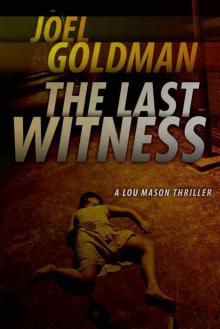 The last witness lm-2
The last witness lm-2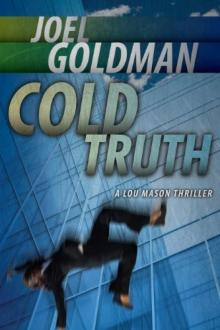 Cold Truth
Cold Truth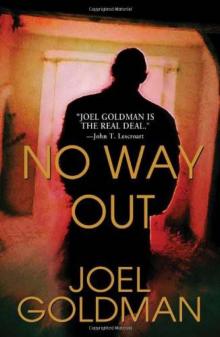 No Way Out (2010)
No Way Out (2010)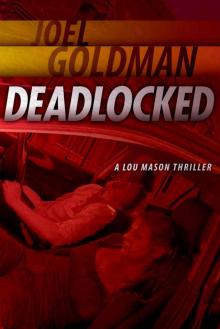 Deadlocked (Lou Mason Thrillers)
Deadlocked (Lou Mason Thrillers)![[Lou Mason 01.0] Motion to Kill Read online](http://i1.bookreadfree.com/i1/03/24/lou_mason_01_0_motion_to_kill_preview.jpg) [Lou Mason 01.0] Motion to Kill
[Lou Mason 01.0] Motion to Kill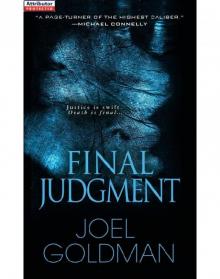 Final Judgment
Final Judgment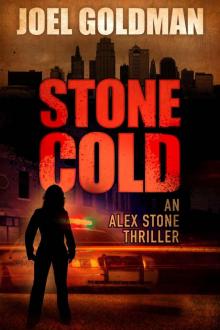 Stone Cold
Stone Cold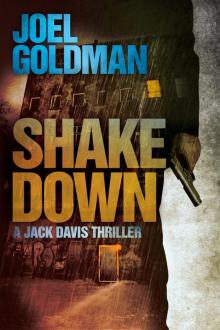 Shakedown
Shakedown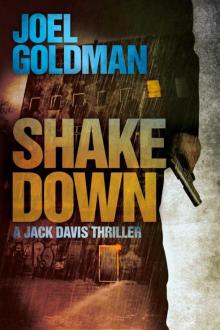 Shakedown jd-1
Shakedown jd-1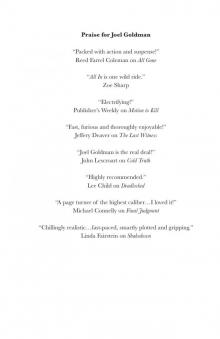 All Gone
All Gone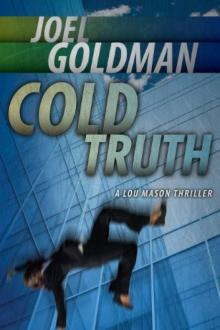 Cold truth lm-3
Cold truth lm-3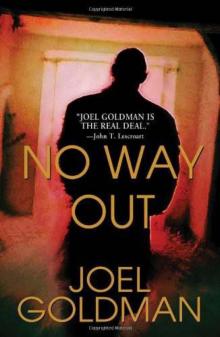 No way out jd-2
No way out jd-2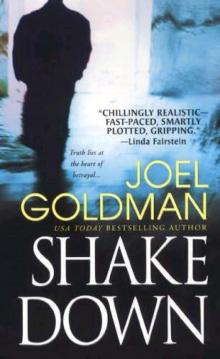 Jack Davis Mystery - 01 - Shakedown
Jack Davis Mystery - 01 - Shakedown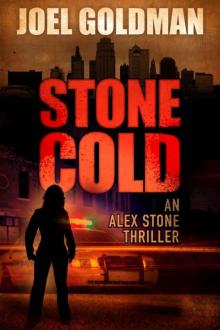 Stone Cold as-1
Stone Cold as-1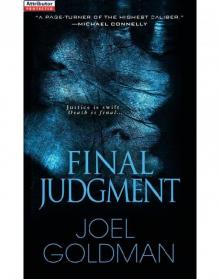 Final judgment lm-5
Final judgment lm-5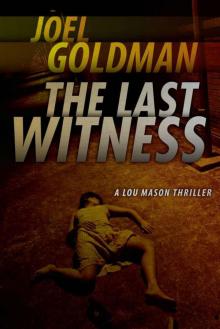 Lou Mason Mystery - 02 - The Last Witness
Lou Mason Mystery - 02 - The Last Witness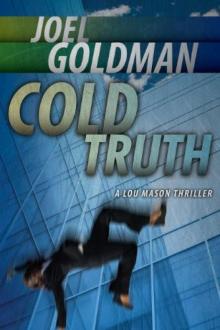 Lou Mason Mystery 03-Cold Truth
Lou Mason Mystery 03-Cold Truth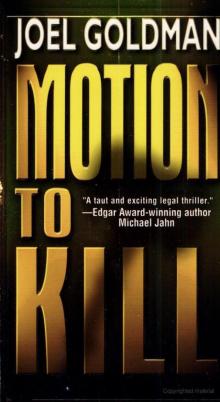 Motion to Kill
Motion to Kill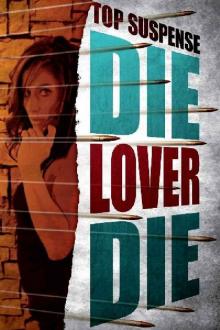 Die, Lover, Die!
Die, Lover, Die!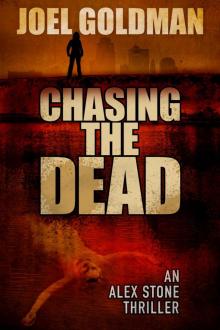 Chasing The Dead (An Alex Stone Thriller)
Chasing The Dead (An Alex Stone Thriller)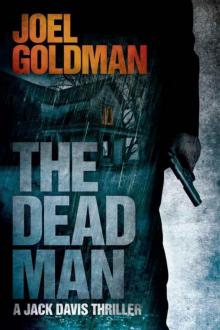 The Dead Man
The Dead Man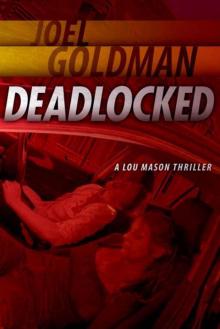 Deadlocked lm-4
Deadlocked lm-4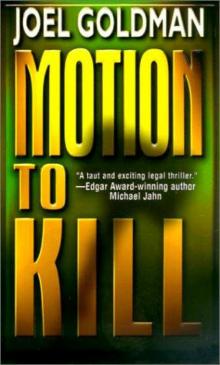 Lou Mason Mystery - 01 - Motion to Kill
Lou Mason Mystery - 01 - Motion to Kill Die, lover, die
Die, lover, die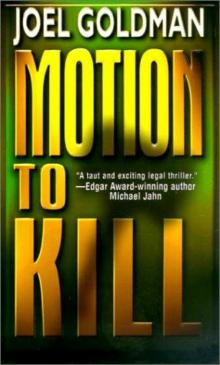 Motion to Kill lm-1
Motion to Kill lm-1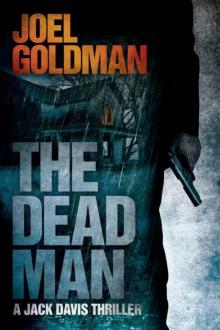 The Dead Man jd-3
The Dead Man jd-3